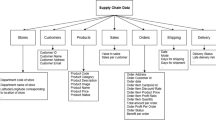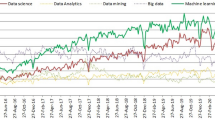Abstract
Federated learning (FL) allows multiple nodes or clients to train a model collaboratively without actual sharing of data. Thus, FL avoids data privacy leakage by keeping the data locally at the clients. Fog computing is a natural fit for decentralized FL where local training can take place at fog nodes using the data of connected Internet of Things (IoT) or edge devices. A cloud-based node can act as the server for global model updates. Although FL has been utilized in fog and edge computing for a few applications, its efficacy has been demonstrated majorly for independent and identically distributed (IID) data. However, real-world IoT applications are generally time-series (TS) data and non-IID. Since there has not been any significant effort towards using FL for non-IID time-series data, this paper presents a fog-based decentralized methodology for time series forecasting utilizing Federated Learning. The efficacy of the proposed methodology for the non-IID data is evaluated using a FL framework Flower. It is observed that the FL based TS forecasting performs at par with a centralized method for the same and yields promising results even when the data exhibits quantity skew. Additionally, the FL based method does not require sharing of data and hence, decreases the network load and preserves client privacy.









Similar content being viewed by others
References
Box, G.E.P., Jenkins, G.M., Reinsel, G.C., Ljung, G.M.: Time series analysis: forecasting and control. Wiley, Hoboken (2015)
Gooijer, De., Jan, G., Hyndman, R.J.: 25 years of time series forecasting. Int. J. Forecast. 22(3), 443–473 (2006)
Wang, Xi., Wang, C.: Time series data cleaning: a survey. IEEE Access 8, 1866–1881 (2020)
Benidis, K., et al.: Deep Learning for Time Series Forecasting: Tutorial and Literature Survey. ACM Comput. Surv. 55(6), 1–36 (2022)
Brownlee, J.: Deep Learning for Time Series Forecasting: Predict the Future with MLPs, CNNs and LSTMs in Python. Machine Learning Mastery (2018)
Brendan McMahan, H., et al.: Communication-efficient learning of deep networks from decentralized data. Proceedings of the 20th International Conference on Artificial Intelligence and Statistics, AISTATS 2017 54 (2017)
Yi, S., Zijiang, H., Zhengrui, Q., Qun, L.: Fog computing: platform and applications. In 2015 Third IEEE Workshop on Hot Topics in Web Systems and Technologies (HotWeb), IEEE, pp. 73–78 (2015)
Hanjri, M. E., Hibatallah, K., Abdellatif, K., Amine, A.: Federated learning for water consumption forecasting in smart cities. Preprint at http://arxiv.org/abs/2301.13036 (2023)
Sharma, M., Parmeet, K.: XLAAM: explainable LSTM-based activity and anomaly monitoring in a fog environment. J. Reliab. Intell. Environ. 9, 1–15 (2022)
Pop, P., Raagaard, M.L., Gutierrez, M., Steiner, W.: Enabling fog computing for industrial automation through time-sensitive networking (TSN). IEEE Commun. Stand. Mag. 2(2), 55–61 (2018)
Khiat, A., Haddadi, M., Bahnes, N.: Genetic-based algorithm for task scheduling in fog-cloud environment. J. Netw. Syst. Manage. 32(1), 3 (2024)
Beutel, D. J., et al.: Flower: a friendly federated learning research framework. Preprint at https://arxiv.org/abs/2007.14390 (2020)
Beutel, D. J., et al.: Flower: a friendly federated learning research framework. arxiv.org. https://arxiv.org/abs/2007.14390 (2020) Accessed 7 May 2023
Gardner, E.S., Jr.: Exponential smoothing: the state of the art. J. Forecast. 4(1), 1–28 (1985)
Hochreiter, S., Schmidhuber, J.: Long short-term memory. Neural Comput. 9(8), 1735–1780 (1997)
Borovykh, A., Sander, B., Cornelis, W. O.: Conditional time series forecasting with convolutional neural networks. Preprint at arXiv:1703.04691 (2017)
Le Nguyen, P., Yusheng J.: Deep convolutional LSTM network-based traffic matrix prediction with partial information. In 2019 IFIP/IEEE Symposium on Integrated Network and Service Management (IM), IEEE, pp. 261–69 (2019)
Jirsik, T., Štěpán T., Pavel C.: Quality of service forecasting with LSTM neural network. In 2019 IFIP/IEEE Symposium on Integrated Network and Service Management (IM), IEEE, pp. 251–260 (2019)
Smith, V., Chao-Kai, C., Maziar, S., Ameet, S. T.: Federated multi-task learning. Advances in neural information processing systems 30 (2017)
Chen, M., Rajiv, M., Tom O., Françoise B.: Federated learning of out-of-vocabulary words. Preprint at arXiv:1903.10635 (2019)
Geyer, R. C., Tassilo, K., Moin, Nabi.: Differentially private federated learning: a client level perspective. Preprint at arXiv:1712.07557 (2017)
Blanchard, P., Mhamdi, E.M.E., Guerraoui, R., Stainer, J.: Machine learning with adversaries: Byzantine tolerant gradient descent. Adv. Neural Inform. Process. Syst. 30, 372–374 (2017)
Ye, H., et al.: VREFL: verifiable and reconnection-efficient federated learning in IoT scenarios. J. Netw. Comput. Appl. 207, 103486 (2022)
Sharma, M., Parmeet, K.: Reliable federated learning in a cloud-fog-IoT environment. J. Supercomput. (2023). https://doi.org/10.1007/s11227-023-05252-w
Xia, T., et al.: HSFL: an efficient split federated learning framework via Hierarchical Organization. In 2022 18th International Conference on Network and Service Management (CNSM), IEEE, pp. 1–9 (2022)
Valente, R., Carlos, S., Pedro, R., Susana, S.; Federated learning framework to decentralize mobility forecasting in smart cities. In NOMS 2023–2023 IEEE/IFIP Network Operations and Management Symposium, IEEE, pp. 1–5 (2023)
Fekri, M.N., Grolinger, K., Mir, S.: Distributed load forecasting using smart meter data: federated learning with recurrent neural networks. Int. J. Elect. Power Energy Syst. 137, 107669 (2022)
Liu, Yi., et al.: Privacy-preserving traffic flow prediction: a federated learning approach. IEEE Internet Things J. 7(8), 7751–7763 (2020)
Zhang, Ge., Zhu, S., Bai, X.: Federated learning-based multi-energy load forecasting method using CNN-attention-LSTM model. Sustainability 14(19), 12843 (2022)
Li, T., Sahu, A.K., Talwalkar, A., Smith, V.: Federated learning: challenges, methods, and future directions. IEEE Signal Process. Mag. 37(3), 50–60 (2020)
Shenoy, M.V.: HFedDI: a novel privacy preserving horizontal federated learning based scheme for IoT device identification. J. Netw. Comput. Appl. 214, 103616 (2023)
Graves, A., Alex, G.: Long short-term memory. In: Supervised sequence labelling with recurrent neural networks, pp. 37–45. Springer, Berlin (2012)
Zhang, G.P., Qi, M.: Neural network forecasting for seasonal and trend time series. Eur. J. Oper. Res. 160(2), 501–514 (2005)
Kairouz, P., et al.: Advances and open problems in federated learning. Foundations and Trends® in Machine Learning 14(1–2): 1–210 (2021)
Yang, Q., Liu, Y., Chen, T., Tong, Y.: Federated machine learning: concept and applications. ACM Trans. Intell. Syst. Technol. (TIST) 10(2), 1–19 (2019)
McMahan, B., et al.: Communication-efficient learning of deep networks from decentralized data. In Artificial Intelligence and Statistics, PMLR, pp. 1273–1282 (2017)
Sattler, F., Wiedemann, S., …, Müller, K. R.: Robust and Communication-Efficient Federated Learning from Non-Iid Data. IEEE transactions on, and undefined. https://ieeexplore.ieee.org/abstract/document/8889996/ (2019). Accessed 7 May 2023
Taieb, S.B., Bontempi, G., Atiya, A.F., Sorjamaa, A.: A review and comparison of strategies for multi-step ahead time series forecasting based on the NN5 forecasting competition. Expert Syst. Appl. 39(8), 7067–7083 (2012)
Makridakis, S., Evangelos, S., Vassilios, A.: Statistical and machine learning forecasting methods: concerns and ways forward. PLoS ONE 13(3), e0194889 (2018)
Taieb, S.B., Hyndman, R.J.: A gradient boosting approach to the kaggle load forecasting competition. Int. J. Forecast. 30(2), 382–394 (2014)
Zhang, G.P.: Time series forecasting using a hybrid ARIMA and neural network model. Neurocomputing 50, 159–175 (2003)
Ma, X., et al.: A state-of-the-art survey on solving non-IID data in federated learning. Futur. Gener. Comput. Syst. 135, 244–258 (2022)
Li, T., et al.: Federated Optimization in Heterogeneous Networks. proceedings.mlsys.org. https://proceedings.mlsys.org/papers/2020/176 (2023). Accessed 7 May 2023
Funding
The authors received no funding for this research from any source.
Author information
Authors and Affiliations
Contributions
Mradula Sharma: Conception and design of study, acquisition of data, analysis and/or interpretation of data, compiled the results of implementation, drafting the manuscript. Parmeet Kaur: Conceptualization, Methodology, Validation, Formal Analysis, Reviewing and finalizing the manuscript critically for important intellectual content.
Corresponding author
Ethics declarations
Competing Interests
The authors declare no competing interests with respect to this manuscript.
Ethical Approval
No ethical approval was required for this research.
Rights and permissions
Springer Nature or its licensor (e.g. a society or other partner) holds exclusive rights to this article under a publishing agreement with the author(s) or other rightsholder(s); author self-archiving of the accepted manuscript version of this article is solely governed by the terms of such publishing agreement and applicable law.
About this article
Cite this article
Sharma, M., Kaur, P. Fog-based Federated Time Series Forecasting for IoT Data. J Netw Syst Manage 32, 26 (2024). https://doi.org/10.1007/s10922-024-09802-2
Received:
Revised:
Accepted:
Published:
DOI: https://doi.org/10.1007/s10922-024-09802-2




